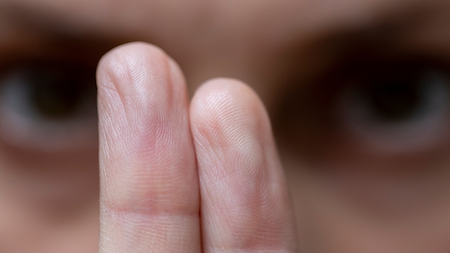My Experience With EMDR Therapy To Treat Depression

About Me
I’m Joel – a fifty-year-old father and husband from Northwest Ohio. I’m a writer and graduate student passionate about film studies, photography, and heavy metal. Officially diagnosed with major depressive disorder and generalized anxiety disorder in 2007, I have suffered from both for most of my life. I’d like to share my journey with depression and specifically how EMDR therapy helped me.
Over the years, I have tried multiple methods to find relief. Initially, I spent some time in a psychiatric hospital. My doctor felt that was my best chance for survival and recovery, and I have no doubt that my life would be exceedingly different now had I not gone. However, my hospital stay was a traumatic event that I am (quite frankly) still recovering from.
Unsuccessful Treatments
This hospital was more fond of drug therapy than cognitive behavioral therapy (CBT), leaving me feeling (and occasionally acting) like a zombie. Naturally, these side effects were not a good mix when it came to employment. I had some struggles in that area as a result.
I tried dozens of medications over the next couple of years. With the help of some excellent doctors, I eventually found a combination that worked for me. I achieved some stability by getting things back on track at work and regularly seeing a therapist. I began working more extensively with CBT, then COVID hit. My job at the time required me to continue working on-site, and after over a year of that, my depression started getting the best of me again.
It was suggested that I might benefit from TMS (transcranial magnetic stimulation), a relatively new treatment involving magnets that stimulate the nerves in your brain. It did help with my cognition, and I was glad to feel some relief in that area, but I found it frustrating that the TMS didn’t directly impact my depression.
I tried countless solutions for depression and anxiety, yet couldn’t overcome my chronic depression. I was already seeing a therapist for CBT work and a psychologist for medication treatments, so adding another doctor seemed excessive. Still, my therapist recommended EMDR therapy (eye movement desensitization and reprocessing), which involves analyzing traumatic events or past negative experiences. I was hesitant to agree that I had any significant “trauma” that needed processing, but I thought the treatment was worth a try.
First & Second EMDR Sessions
I went to my first EMDR therapy session with some misgivings. My concern was that it would be another information-gathering experiment that would make me feel worse about myself. I wasn’t shy about my concern, but I suspected therapists were used to that sort of disparagement. We worked on finding a focus for future appointments, which the doctor explained would examine how specific events from my childhood might affect how I react to the world as an adult.
I was introduced to some grounding and mindfulness exercises during my second visit. Using a combination of deep breathing and visualization, the therapist encouraged me to create a calm space in my mind that I could go to if I had a potentially debilitating episode. This space should look, sound, and smell familiar and peaceful, and I should feel welcome to visit frequently.
We began discussing some of my unhappy childhood memories, and I thought of five or six that proved exceptionally difficult. We identified which of the bunch was most troubling and set that as a target for discussion during the next session.
Third EMDR Session (and Beyond)
I had a breakthrough during my third session. In first grade, an event occurred that left me feeling worthless, defeated, and endlessly simple-minded. I realized that this event began a lifelong relationship with negative self-talk and that, at some point, I started to believe the horrible things I was saying about myself.
For over forty year, I had been calling myself names. I called myself things I wouldn’t dream of calling anyone I remotely cared about. Yet, for some reason, I was not one of those people. I cried in my car for a half hour after that appointment.
Over weeks, we processed that memory, helping me accept my past and present self, flaws included. I discovered where I carried all those negative emotions in my body and learned ways to recognize when I felt a similar way.
Post-appointment, I felt drained and emotional but found balance using prior relaxation techniques. I didn’t have to be good at them; I just had to remember they were options.
Some Advice
Managing depression and anxiety is, for me, a multi-tiered process. I use every tool at my disposal as often as necessary and continue to wrestle with my mental stability regularly. In fact, I still see a psychiatrist every month to monitor medications and side effects. I still see a weekly psychologist to work through cognitive challenges and depressive episodes. Applying some tips help, like carrying a stress ball or avoiding alcohol. I go to bed early, maintain a strict medication schedule, and always keep my phone on silent. I realize that doesn’t sound like a ton of fun, but if the alternative is a panic attack or crippling depression… I’ll take the regimen; thank you very much.
It took EMDR therapy to help me appreciate the importance of each one of these coping skills. I’m proud to have developed skills tough enough to help me get through fifty years on this planet.


Leave a Reply
You must be logged in to post a comment.